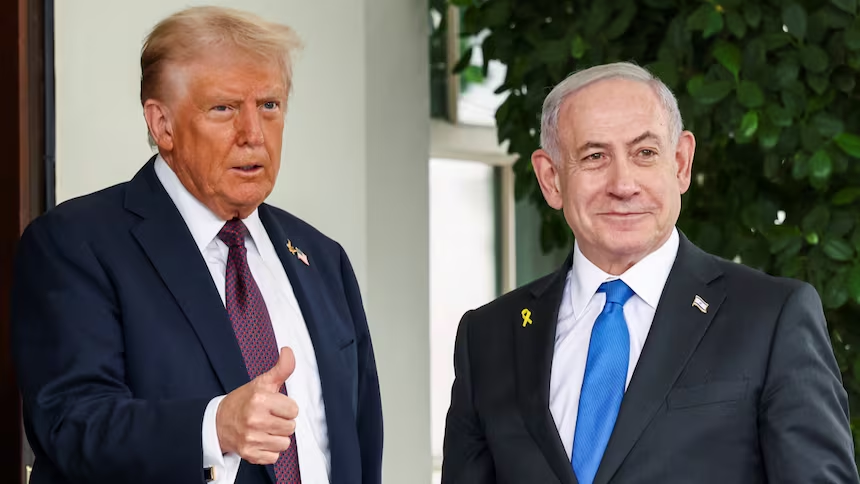Benjamin Netanyahu announced Monday that Israel has agreed to a U.S.-sponsored 20-point plan aimed at ending the nearly two-year war in Gaza. The proposal now hinges on whether Hamas will accept the framework.
At a White House news conference, President Trump said the two sides were “beyond very close” to an agreement, but he warned Hamas that Israel would have Washington’s full backing to act if the group rejected the proposal.
“This plan is designed to stop the death and destruction and open a new chapter of security, peace, and prosperity for the region,” Trump said.
Details of the 20-Point Plan
The White House released the proposal, which includes:
- An immediate ceasefire
- The release of Israeli hostages held by Hamas in exchange for Palestinian prisoners in Israel
- A phased Israeli withdrawal from Gaza
- Hamas disarmament
- A transitional international governing authority to oversee Gaza’s recovery and political transition
Standing alongside Trump, Netanyahu said the U.S. plan aligns with Israel’s war objectives.
“It will bring back to Israel all our hostages, dismantle Hamas’s military capabilities, end its political rule, and ensure that Gaza never again poses a threat to Israel,” Netanyahu said.
He added that if Hamas refuses, Israel is prepared to “finish the job.”
Hamas has not been directly involved in the negotiations, raising doubts about the plan’s viability. A Hamas official told Reuters that the group has not yet received the plan officially, only hearing of it through the media.
Israel says Hamas continues to hold 48 hostages, with 20 still alive.
The war has devastated Gaza, with health authorities reporting more than 66,000 Palestinian deaths and large swathes of the territory reduced to rubble. Israel’s latest offensive has pushed tanks deeper into Gaza City.
Netanyahu faces mounting domestic pressure from the families of hostages and a weary Israeli public. At the same time, his coalition risks collapse if far-right ministers view concessions as excessive.
The announcement comes just days after dozens of world leaders walked out of Netanyahu’s speech at the UN General Assembly in protest of Israel’s Gaza policy, and amid widespread recognition of Palestinian statehood by several Western governments.
Previous U.S.-brokered ceasefire efforts have collapsed due to gaps between Israeli and Hamas demands. The Trump administration is now betting on Netanyahu’s support to put new pressure on Hamas, but the militant group’s response will ultimately determine whether the plan succeeds or fails.

